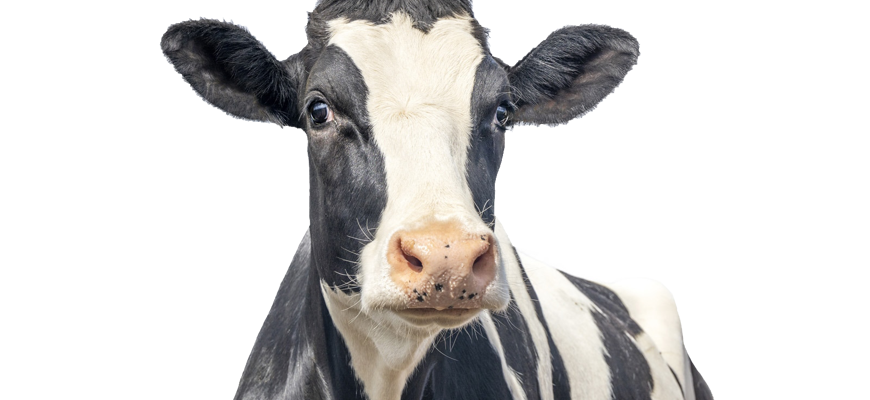Animals, ESG and climate change: the solicitor’s role

What is one of the big issues keeping animal lawyers awake at night? The answer might surprise you. It is the contribution of intensive animal agriculture to climate change. The big question is: how can the law address the animal welfare, environmental and climate change impacts of our food system while benefitting humans, animals, and the environment?
Animal laws can be categorised as those which have non-human animals as their central focus, such as anti-cruelty offences. But animal law can impact, and is relevant to, almost any other area of law. This is what makes it such an interesting topic to study, and practise.
For example:
- your client might be getting divorced or separated, and there is a dispute over who keeps the family pet;
- you might be advising on planning laws or a property purchase and have to explain to clients the implications of finding an active badger sett on their property;
- you may have a tenant who wants to live with an emotional support animal, or a pet, but keeping animals is prohibited by the tenancy agreement;
- a client could be accused of an animal cruelty offence;
- another client could be marketing a new food product, and they require advice on whether the claims they make about their animal welfare policies stand up to scrutiny, or whether they could be criticised as “humanewashing”;
- it may be necessary to respond to some shareholder activists on a client’s board, who wish to raise animal welfare issues to increased prominence in decision-making;
- if your client is exporting their produce overseas, you might need to be familiar with the World Trade Organisation’s GATT rules and exceptions;
- your client could be developing a new cosmetic, medicine or vaccine and needs to understand the circumstances when animals can and cannot be used in research…
The possibilities are almost endless.
Challenges of intensive animal agriculture
The increasing global demand for meat consumption and an expanding human population has led to the industrialisation and intensification of the processes of raising animals for food. With 70 billion animals raised and slaughtered for food every year across the world, the existing methods of production are coming under increasing scrutiny. Close confinement of farmed animals can lead to disease, and overuse of antibiotics increases antimicrobial resistance, which poses a threat to all of us.
Animal lawyers are particularly interested in how farmed animals are raised. Each country is different, but the law may govern how much space each animal is permitted, whether it can be housed with companions or individually, whether it can be given antibiotics to treat diseases or promote growth, and the ways in which it can be killed (among other things). The impact of animal laws extends beyond the individual animals themselves, as this discussion seeks to emphasise.
Intensive animal agriculture also poses a challenge for the environment. International Aid for the Protection & Welfare of Animals (“IAPWA”), an animal welfare charity, references recent studies which show that animal agriculture is responsible for 18% of global greenhouse gas emissions, compared with 13% for the transport sector. According to a 2021 study, emissions can arise from the production of animals for food, the production of feed for livestock, deforestation, and the release of methane by livestock.
Large numbers of animals produce copious amounts of waste, which must be managed appropriately, with protection of human health and watercourses in mind. Animal lawyers work at the intersection between animal and environmental law to address the impacts of intensive agriculture and tackle social justice issues such as air and water pollution in communities, nuisance claims, and workers’ rights. The environmental, social and governance (“ESG”) implications are obvious and far-reaching.
The interests of human health, animal welfare, prevention of future pandemics, and mitigation of climate change underscore the need to transition to a more just and sustainable food system. This is one of our most pressing challenges.
Client advice and climate change
In an increasingly globalised world, it is clear that solicitors must consider the ways in which their daily work in advising clients can help or hinder climate change efforts. Fortunately, awareness of, and interest in, these issues within the Scottish legal profession is high. In a 2020 Law Society of Scotland survey of its members, 57% of 145 respondents agreed that climate change is important to them in their professional capacity. The recent guidance published by the Law Society of England & Wales on the impact of climate change on solicitors makes interesting reading. The guidance discusses solicitors’ duties to warn clients and disclose climate legal risks, and acknowledges that solicitors may need to consider whether to withdraw from acting if a client makes misleading claims about the climate impacts of their business. It recognises that changing expectations could lead to an evolution in the standards of a reasonably competent solicitor to include an awareness of the impact
of climate change.
This new guidance has wide implications, and solicitors should consider the impacts this may have on their practice and any additional knowledge they may require (even those who are not regulated in England & Wales).
Recent animal law litigation
Animal law litigation is clearly on the rise. You only have to look to the Non-human Rights Project’s work in the US to see that such issues are coming to the attention of judges on a more regular basis.
In the UK, issues such as how we raise farmed animals, and the management of wildlife, are increasingly coming under scrutiny. For example, in 2020 the charity Compassion in World Farming raised judicial review proceedings against the Scottish Government concerning the export of live calves from Scotland. It was argued that in permitting the export of unweaned calves for journeys longer than eight hours, without water and rest, the Scottish Government breached Council Regulation EC No 1/2005 (the “Transport Regulation”) which forms part of retained EU law. Compassion in World Farming reported that while the Scottish Government initially defended the case, it later accepted that the trade in unweaned calves from Scotland was in breach of the Transport Regulation as maximum permitted journey times were exceeded. The proceedings were subsequently dropped. This case is an interesting example of steps being taken by charities to enforce EU law on farmed animal welfare.
Another recent case concerned conservation, rewilding and the protection of natural habitats. In 2021, the judicial review launched by Scottish rewilding charity Trees for Life was heard by Lady Carmichael in the Court of Session: [2021] CSOH 108. Trees for Life is interested in the protection of beavers, given the benefits they can bring to ecosystems, as well as increased biodiversity, and flood reduction. The judicial review was raised against NatureScot, Scotland’s natural heritage public body, and centred on the licences granted by NatureScot allowing lethal control of beavers. Licences can be granted where farmland is deemed to be at risk of damage by beavers, or there are human health and safety concerns. Lady Carmichael refused to uphold the majority of the challenges raised by the charity; however her Ladyship held that NatureScot was in breach of the duty to give reasons when issuing its licence decisions and a number of licences were reduced by the court as a result.
Returning to farmed animal welfare, The Humane League recently challenged the Secretary of State’s code of practice providing welfare guidance for the rearing of broiler (meat) chickens (R (on the Application of The Humane League UK) v Secretary of State for Environment, Food and Rural Affairs [2023] EWHC 1243 (Admin)). The evidence in the case was that 95% of fast-growing broiler chickens are raised conventionally in large, closed buildings with a maximum stocking density (weight of birds per square metre) of 39kg, the maximum permitted by the EU “Broilers Directive” (2007/43/EC). The Humane League argued that because these birds are subject to welfare problems, such as leg disorders, cardiovascular disease, bone problems and higher mortality rates (often as a consequence of genetic selection), the Secretary of State had acted unlawfully in promulgating the industry code of practice and policies regarding their welfare. EU law (Directive 98/58/EC) provides that an animal must not be kept for farming purposes “unless it can reasonably be expected, on the basis of its genotype or phenotype, that it can be kept without detrimental effect on its health or welfare.”
Significantly, reference was made in the case to the Animal and Plant Health Agency’s 2022 review of the scientific literature, which noted that slower-growing chicken breeds are more able to cope with higher temperatures. This is relevant to the future of farming given hotter global temperatures because of climate change.
Sir Ross Cranston in the High Court rejected The Humane League’s arguments, finding that the Secretary of State’s judgment call based on the scientific evidence was not a breach of her duties under public law. The Secretary of State had acknowledged the welfare problems with fast-growing chickens, but determined there was no scientific consensus that they could not be kept without detriment to their welfare, as environmental conditions such as stocking densities and enrichment are also relevant considerations. The judicial review was dismissed. It was announced on 7 June 2023 that The Humane League is seeking to appeal the decision.
In other news, selective breeding of chickens was debated at the European Parliament on 28 May 2023, with the issue to form part of a forthcoming review of EU animal welfare legislation later this year.
Time to step up
The pace of development of animal law is accelerating, in tandem with a growing interest in the topic. As climate-conscious professional advisers, solicitors will play an essential role in supporting their clients to make some of the changes needed to address the climate crisis. It is time to step up to the plate.
Perspectives
Features
Briefings
- Criminal court: Dangerous or careless?
- Corporate: Bill gives CMA consumer enforcement powers
- Agriculture: A question for the Land Court?
- Intellectual property: Who owns AI generated copyright?
- Succession: Variation by an attorney?
- Sport: Participation in LIV Golf ruled out of bounds
- Scottish Solicitors' Discipline Tribunal: June 2023
- Data protection: Meta's mega matter
- In-house: Scanning wider horizons







